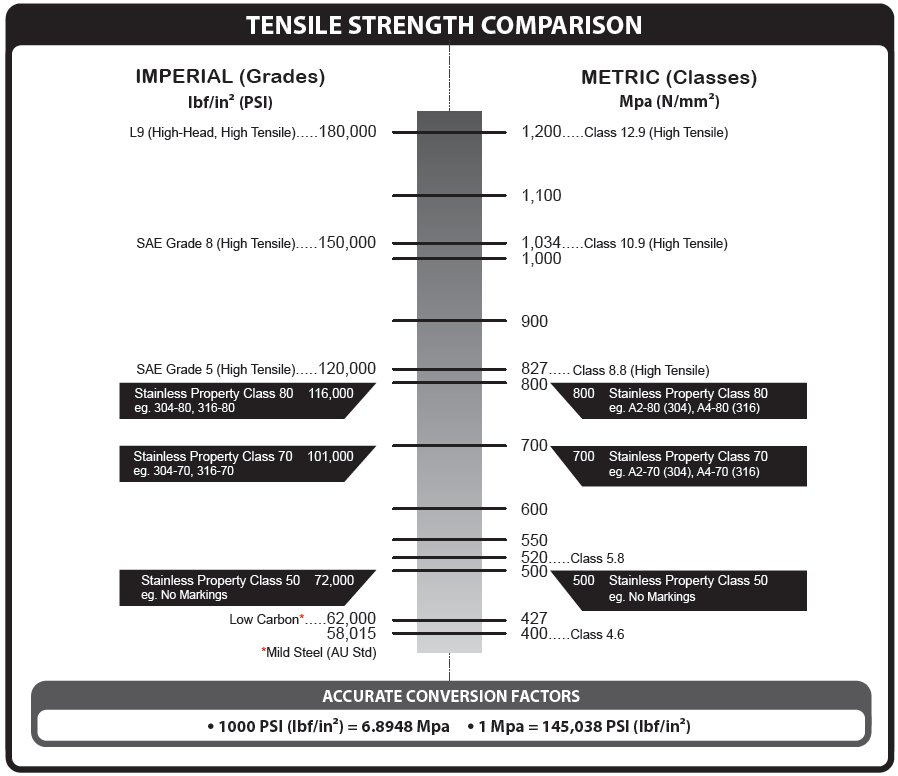Metric Fasteners – Technical Specifications
Many of our products are measured with metric, rather than Imperial (inch) measurements. Common in many parts of the world, metric measurements are found in products such as metric bolts, screws, fasteners, and drill bits.
Metric bolts commonly have lengths measured in millimeters (mm) such as 10mm, 20mm, or 45mm. Commonly made of steel or stainless steel, metric bolts can also have a plating such as zinc, or a finish such as phosphate and oil. Metric bolts can come in a variety of types including carriage bolts, eyebolts, hex bolts, t-bolts, flange bolts, and u-bolts. Bolt head style, drive style, material, size, and grade are also important in the selection of metric bolts. Bolt head style such as button, hex, flat, round, and square are common in metric bolts.
If you feel less than 100 percent certain about which metric bolts or other fasteners to order, save yourself some potential buyer’s remorse and contact us with any questions you may have. We can help you make the right choice, every time.
Metric vs. Imperial
Use this Chart below to Convert between Imperial and Metric
 Click to View Full Size
Click to View Full Size
Most fastener applications are designed to support or transmit some form of externally applied load. If the strength of the fastener is the only concern, there is usually no need to look beyond carbon steel. Over 90% of all fasteners are made of carbon steel. In general, considering the cost of raw materials, non-ferrous should be considered only when a special application is required.
Tensile Strength
The most widely associated mechanical property associated with standard threaded fasteners is tensile strength. Tensile strength is the maximum tension-applied load the fastener can support prior to its fracture.
Grades & Sizes
Metric Fasteners come in many grades & sizes. Fastener Grade (US) or Class (metric) refers to the mechanical properties of the fastener material. Generally, a higher number indicates a stronger, more hardened (but also more brittle) fastener. Our handy charts can help you find the metric fastener you need for your application.

